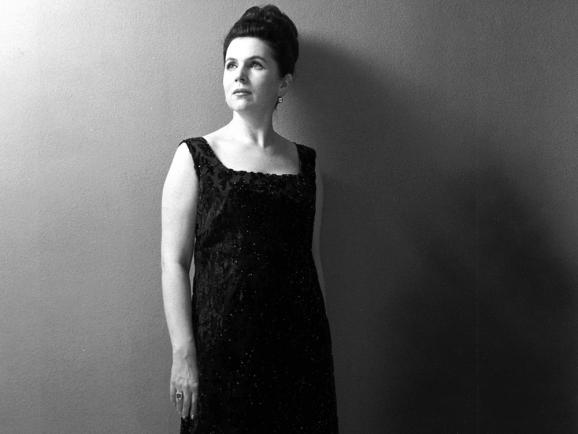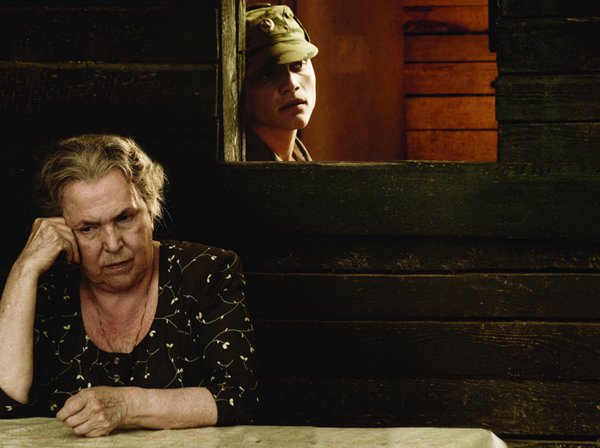
Galina Vishnevskaya, the Russian tigress
By Sebastian Spreng, Visual Artist and Classical Music Writer
Galina Vishnevskaya was, above all, a survivor. Her life was out of an opera. Were only half of what she relates in her autobiography true, it would be enough to merit unconditional admiration. Everything was extreme in the tumultuous life of the mythical Vishnevskaya. Her book – Galina: a Russian Story – even inspired an opera by Marcel Landowski. Abandonment, tuberculosis, poverty, war, the siege of Leningrad, hardship and what was yet to come, almost as intense as what had gone before…
Vishnevskaya was the muse of composers like Shostakovich, Prokofiev, Britten and poet Anna Akhmatova (she wrote “On hearing Vishnevskaya sing Mozart”), Prima Donna Assoluta of the Bolshoi Theater of the 50s and 60s; and a prime export of the Soviet regime (as many others like Maya Plisetskaya and Mstislav Rostropovich, Vishnevskaya’s third husband and father of her two daughters). Both “People Artists of the USSR”, the couple first disobediently criticized the invasion of Czechoslovakia, and in 1974, because they sheltered dissidents Andrei Sakharov and Alexander Solzhenitsyn, became “nonpersons” and were forced into exile. They were stripped of their citizenship (for “acts harmful to the country”) and settled first in America and then Europe. With perestroika came rehabilitation and a triumphant return.
Behind are now the intrigues and power struggles, the defiance of the Kremlin, rivalries with colleagues, the adoration of Rostropovich, who died in 2007, and her last tantrum, at the Bolshoi in response to enfant terrible Dmitri Tcherniakov’s staging of Eugene Onegin.
Coincidently, Galina decided to become a singer when she heard a recording of Eugene Onegin at the age of 10. Ironically, it was as Tchaikovsky’s Tatyana that she both made her Bolshoi debut, her signature role and her farewell performance. Hers was an immediately recognizable voice – at once crude, savage and exquisite – a voice that seemed to come out of nowhere and float in space. She was the voice of Katerina Izmailova, Pique Dame’s Lisa, War and Peace’s Natasha, Iolanta, Joan of Arc, Boris Godunov’s Marina and other Russians, because hers – fierce, imploring, plaintive, nostalgic – was Russian to the core.
Liu and Butterfly and earlier Aidas and Violettas were her best forays into the Italian repertoire, though later, when in exile in the West and already in decline, she was unable to compete with her colleagues.
Contradictory, clever, tempestuous, generous, abrupt, she was a gorgeous tigress of the steppes, her eyes as green and penetrating as the voice that Britten imagined for her in his War Requiem. In the Lacrimosa, her voice seems indeed to be a figment of someone’s imagination as it fades into thin air. Whether in opera or song, pleasant or piercing, it was her blazing timbre, her way of abandoning herself over a musical phrase that persists, reverberating, inviting one to journey to faraway lands.
And last week, when her heart could not go on, she went to die at the dacha where she and her husband had hidden the author of the Gulag Archipelago; where she had been happy and stormy with the great “Slava”, the love of her life.
Luckily before that, filmmaker Alexander Sokurov (Russian Ark) knew to make good use of her unique talent. She was unforgettable in the title role of Alexandra, an old woman looking for her grandson at the Chechen front, and played herself in the documentary Elegy of Life. Though the voice was gone, the mask of tragedy remained. Essential, majestic and precise in every tone and pause, Vishnevskaya telling of her 10-week-old son’s death, is a heartrending opera aria without the music. The last minute of the documentary is even more revealing. It’s an unexpected close-up during a princely meal. Galina looks at the camera, alert and defiant as always. Suddenly, her face dissolves into a smile that summarizes an entire life. In the end, her heart wins, her Russian spirit wins.

Recent Content
-
Artsarticle ·
-
Artsarticle ·
-
Artsarticle ·

